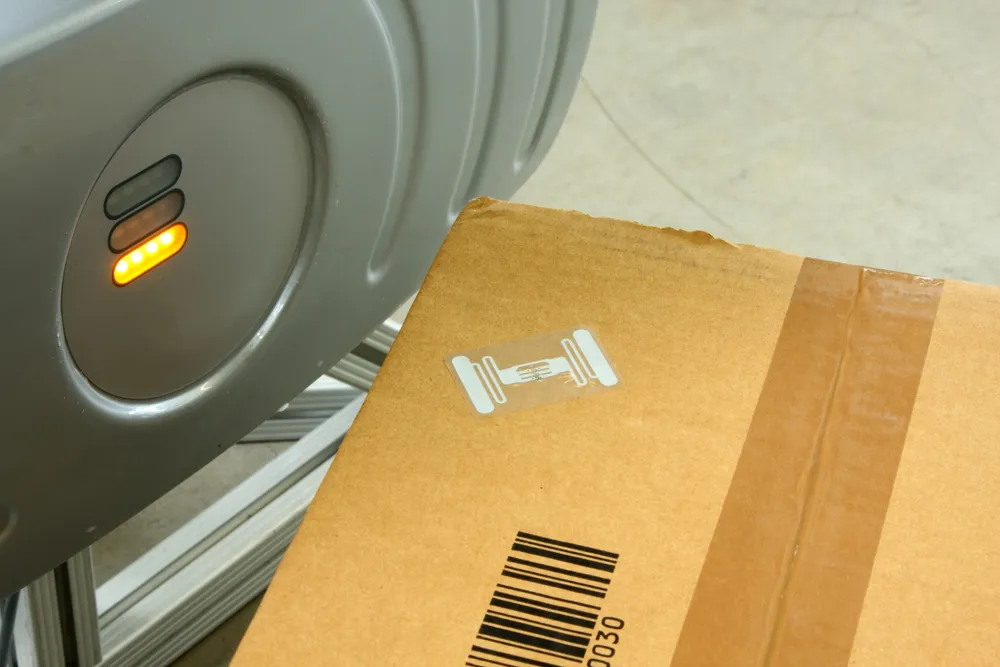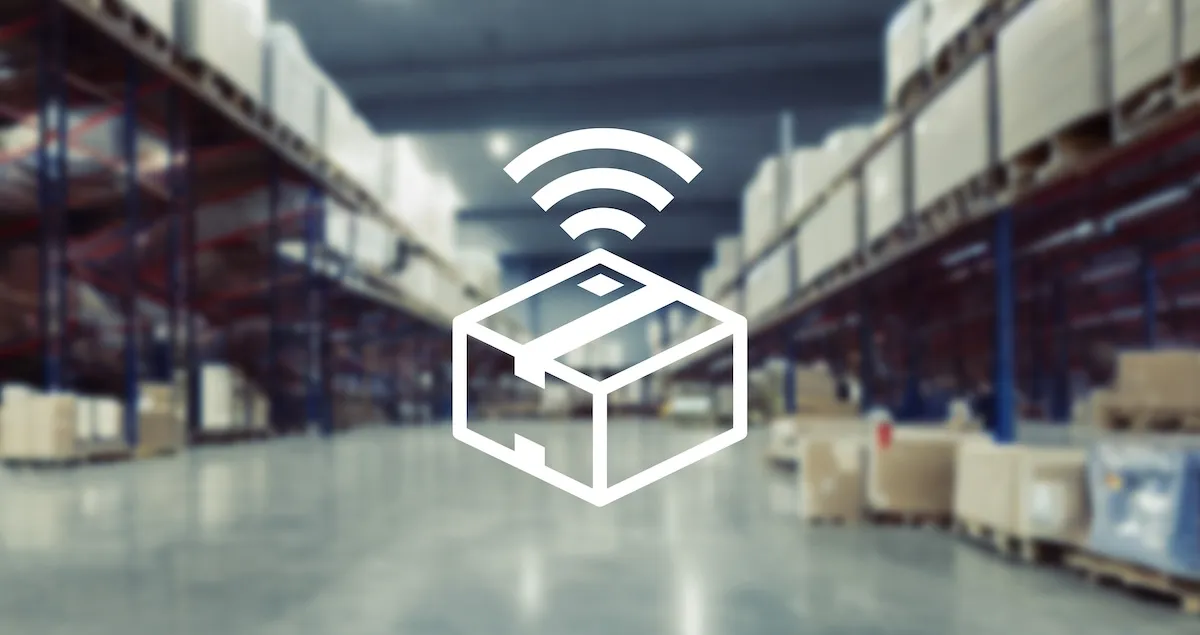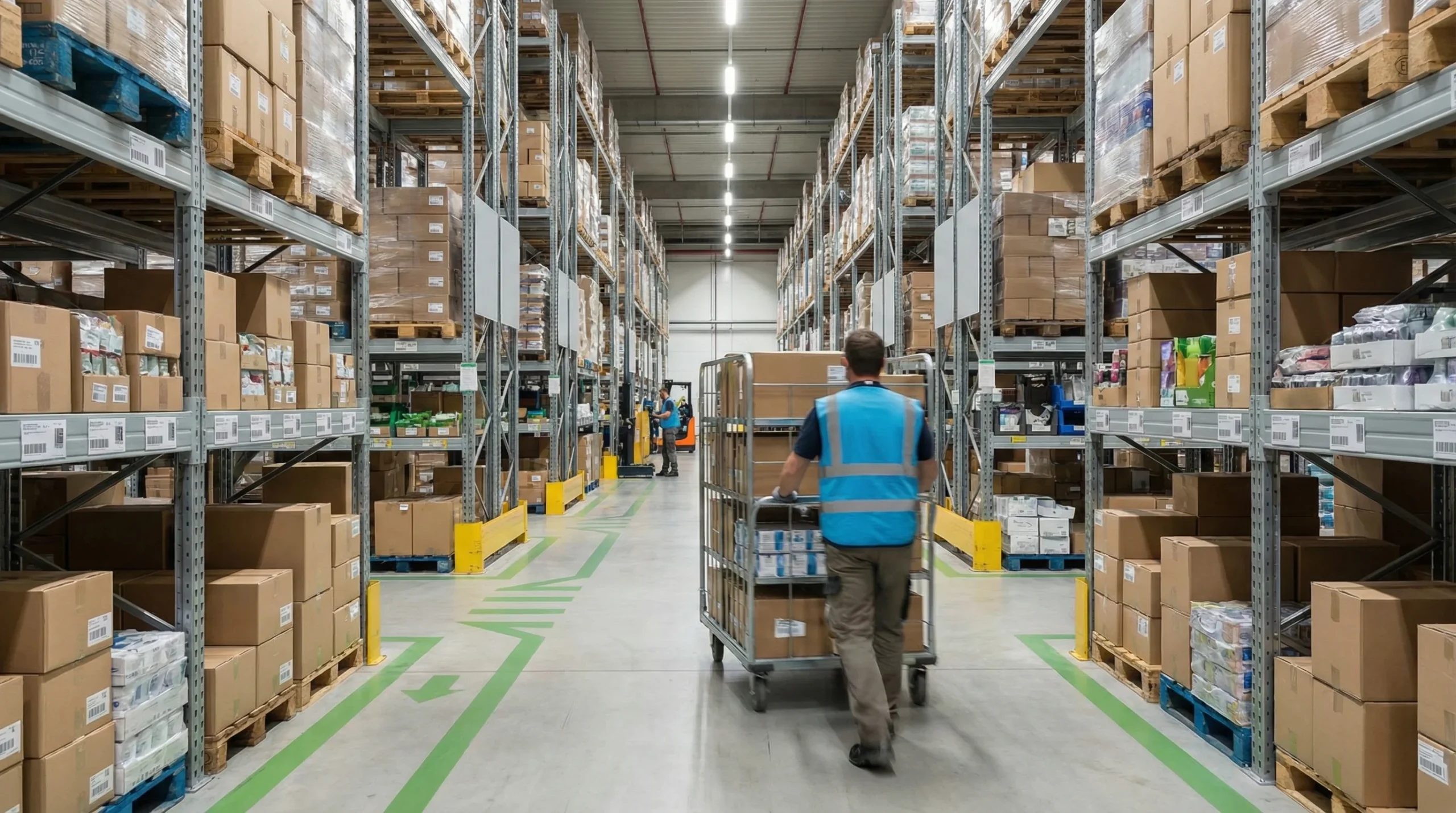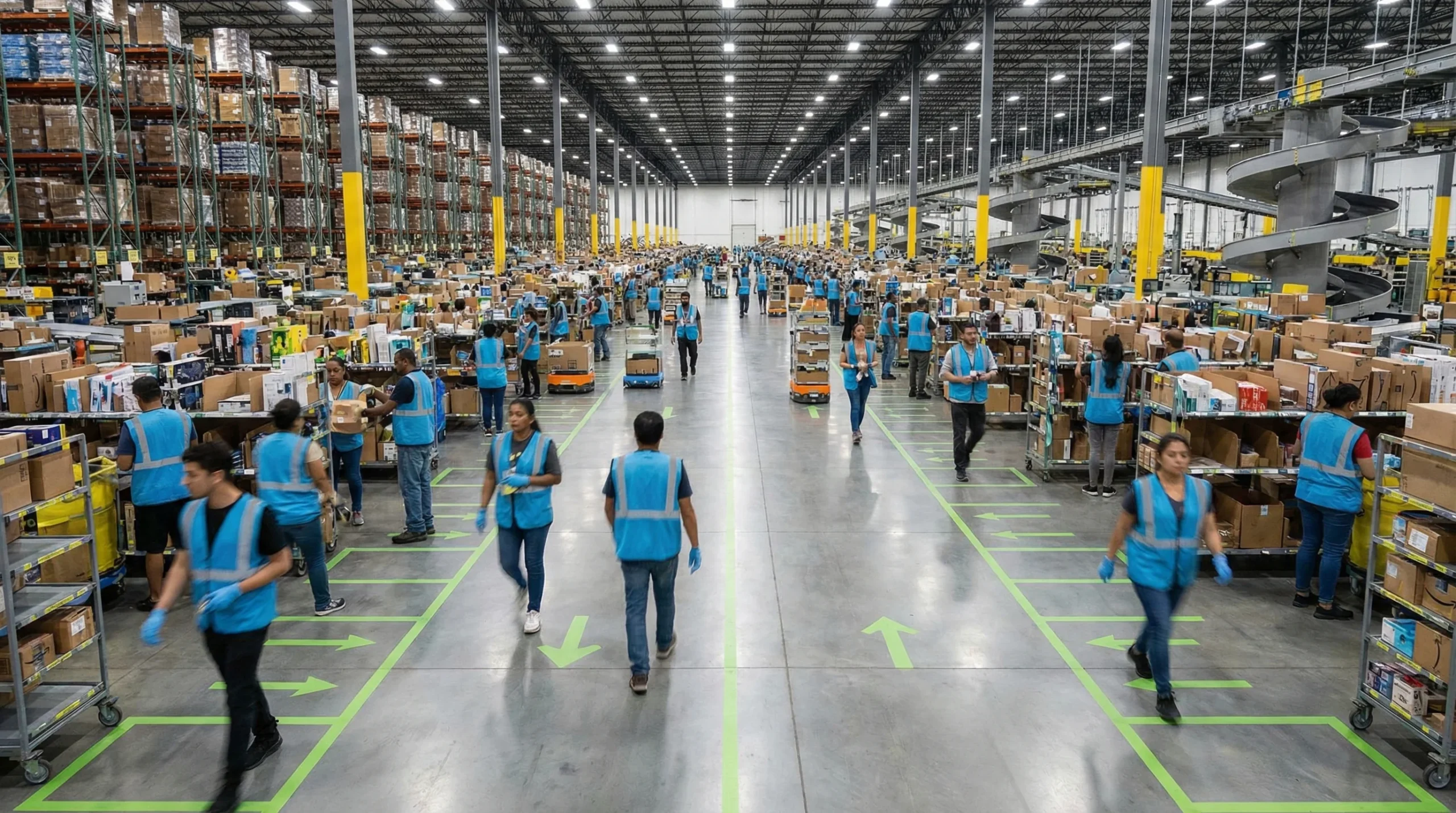Discover how to optimize warehouse operations with RFID technology in this comprehensive guide to RFID warehouse management.
RFID (Radio Frequency Identification) technology has revolutionized the way warehouses manage their inventory and streamline their operations. With its ability to track and identify items with greater accuracy and efficiency than traditional barcode systems, RFID has become an indispensable tool for warehouse managers seeking to optimize their processes and boost productivity. In this essential guide, we will delve into the basics of RFID technology and explore its myriad benefits in warehouse management. We will also provide practical insights on implementing, maintaining, and upgrading an RFID system, as well as discuss future trends in the field.
Understanding RFID Technology
The Basics of RFID
At its core, RFID technology uses radio waves to transmit and capture data between RFID tags and readers. RFID tags contain a microchip and an antenna, which enables them to store and transmit information wirelessly. These tags come in various forms, such as adhesive labels, hard tags, or even embedded in products or packaging. RFID readers, on the other hand, are devices that capture the signals emitted by the tags and decode the information contained within.
RFID technology has revolutionized supply chain management by providing a seamless and efficient way to track and manage inventory. The ability of RFID tags to store unique identification numbers for individual items allows for granular tracking throughout the entire supply chain. This level of detail not only enhances inventory accuracy but also streamlines processes such as order fulfillment, shipping, and receiving.
The Role of RFID in Warehouse Management
In warehouse management, RFID technology offers a range of capabilities that go beyond traditional barcode systems. RFID enables real-time tracking of inventory, providing accurate and up-to-date information on stock levels, locations, and movements. This real-time visibility allows warehouse managers to make informed decisions, optimize stock placement, and prevent stockouts or overstock situations. Additionally, RFID enables automated data capture, reducing manual data entry errors and increasing overall operational efficiency.
Furthermore, RFID technology can enhance security measures within warehouses by enabling access control and monitoring of sensitive areas. By using RFID tags embedded in employee badges or equipment, warehouse managers can restrict access to specific zones and track movements within the facility. This not only helps in preventing unauthorized access but also aids in ensuring workplace safety by monitoring the presence of personnel in hazardous areas in real-time.
Smarter Warehouse Management Starts Here
From receiving to shipping, SphereWMS gives you real-time visibility and control over every square foot. See how it works for your operation.
Schedule Your DemoBenefits of RFID in Warehouse Management
Improving Inventory Accuracy
One of the most significant advantages of RFID technology in warehouse management is its ability to enhance inventory accuracy. With RFID tags attached to every item or pallet, warehouse staff can easily scan multiple items simultaneously, reducing the time and effort required for manual scanning. This accuracy not only ensures better inventory control but also enables timely replenishment and efficient order fulfillment, resulting in improved customer satisfaction.
Enhancing Operational Efficiency
RFID technology enables automation and streamlines various warehouse processes, leading to enhanced operational efficiency. By automating data capture and eliminating time-consuming manual scanning, RFID helps warehouse staff perform their tasks more quickly and accurately. With real-time data on inventory levels and movements, warehouse managers can make informed decisions on stock replenishment, routing, and workforce allocation, ultimately improving overall efficiency and productivity.
Reducing Labor Costs
Implementing RFID technology in warehouse management can significantly reduce labor costs. The automation and efficiency gains provided by RFID free up valuable staff time that would otherwise be spent on manual scanning and data entry. This saved time can be allocated to more productive tasks, reducing the need for additional staff or overtime hours. Moreover, RFID allows for quicker inventory audits and cycle counts, eliminating the need for lengthy physical inventory checks and reducing the labor-intensive nature of these processes.
Another advantage of RFID technology in warehouse management is its ability to improve supply chain visibility. With RFID tags, each item can be tracked throughout the entire supply chain, from the manufacturer to the warehouse and ultimately to the customer. This visibility enables better demand forecasting and inventory planning, as warehouse managers can easily identify trends and patterns in product movement. By having a clear understanding of inventory levels and customer demand, warehouses can optimize their stock levels, reducing the risk of stockouts or overstocking.
In addition to improving supply chain visibility, RFID technology also enhances product traceability. Each RFID tag contains a unique identifier, allowing warehouse managers to track the movement of individual items. This traceability is particularly beneficial in industries with strict regulatory requirements, such as pharmaceuticals or food and beverage. In the event of a product recall or quality issue, RFID technology enables rapid identification and isolation of affected items, minimizing the impact on customers and reducing potential liability.

Implementing RFID in Your Warehouse
Implementing RFID (Radio Frequency Identification) technology in your warehouse can greatly enhance your inventory management and streamline your operations. By accurately tracking and monitoring your inventory in real-time, RFID can help you improve efficiency, reduce errors, and increase productivity. However, before diving into the implementation process, there are several important considerations to keep in mind.
Choosing the Right RFID System
When implementing RFID in your warehouse, it is crucial to choose the right RFID system for your specific needs. Consider factors such as the size of your warehouse, the nature of your inventory, and your budget. Look for RFID solutions that integrate seamlessly with your existing warehouse management systems, ensuring a smooth transition and compatibility. Seek the advice of RFID experts or consultants who can guide you in selecting the most suitable system for your unique requirements.
Training Staff on RFID Use
Introducing new technology in any workplace requires proper training of staff to ensure its effective use. When implementing an RFID system in your warehouse, invest in comprehensive training programs for your employees. Educate them on the benefits of RFID, the correct usage of RFID readers and tags, and how to interpret the data collected. A well-trained workforce will be the key to maximizing the benefits of RFID and ensuring a successful implementation in your warehouse.
Overcoming Implementation Challenges
Implementing RFID in your warehouse may present some challenges that need to be addressed to ensure a smooth transition. One common challenge is tag interference caused by the presence of metal or liquids in the warehouse environment. Conduct thorough testing and evaluate the performance of the RFID system in different scenarios and areas of your warehouse. Investing time and effort in overcoming implementation challenges will lead to an optimized RFID system that delivers the expected results.
Another challenge that may arise during the implementation process is resistance to change from employees. Some employees may be hesitant or resistant to adopting new technology, fearing that it may disrupt their routine or job security. To overcome this challenge, it is important to communicate the benefits of RFID clearly and involve employees in the decision-making process. Encourage open dialogue, address their concerns, and provide ongoing support and training to help them adapt to the new system.
Furthermore, it is essential to have a well-defined implementation plan in place. This plan should outline the specific steps and timeline for implementing the RFID system, including testing, training, and monitoring progress. Assign a dedicated team or project manager to oversee the implementation process and ensure that all necessary resources are allocated appropriately.
By carefully considering these factors and addressing any challenges that may arise, you can successfully implement RFID in your warehouse and reap the numerous benefits it offers. From improved inventory accuracy to enhanced operational efficiency, RFID can revolutionize your warehouse management and drive your business towards greater success.

Maintaining and Upgrading Your RFID System
Regular System Maintenance
Regular maintenance is essential to keep your RFID system running smoothly and efficiently. Establish a maintenance schedule to inspect and test your RFID readers, tags, and associated equipment. Clean and calibrate the readers and inspect the integrity of the tags regularly. Implement a system to monitor the battery life of active RFID tags and replace them when necessary. By conducting regular maintenance activities, you can prevent hardware failures and ensure the longevity of your RFID system.
Keeping Up with Technological Advances
RFID technology continues to evolve rapidly, with new advancements and features emerging regularly. It is crucial to stay updated with these advancements to capitalize on the full potential of RFID in your warehouse management. Follow industry publications, attend conferences or seminars, and engage with RFID solution providers to stay informed about the latest trends and developments. Regularly assess your RFID system against new technologies and consider upgrading when it aligns with your warehouse management goals.
Future Trends in RFID Warehouse Management
The Emerging Role of AI and IoT
The Internet of Things (IoT) has already shown its impact on RFID warehouse management by providing real-time contextual data from the warehouse floor. However, the integration of Artificial Intelligence (AI) with RFID is still in its early stages. Although not yet widespread, AI algorithms will eventually enable advanced analytics, predictive modeling, and more intelligent decision-making in RFID systems. Such advancements are expected to drive significant efficiency and optimization once they are implemented. For now, the focus remains on harnessing the power of IoT to enable proactive operations and more accurate demand forecasting.
Sustainability and RFID
Amid growing concerns about environmental sustainability, RFID technology offers significant benefits in reducing waste and promoting eco-friendly practices in warehouse management. By providing accurate inventory data and reducing overstock situations, RFID helps minimize unnecessary production and waste. Additionally, RFID enables efficient supply chain management, reducing transportation emissions and optimizing route planning. Embracing RFID technology aligns with sustainability goals and contributes to a greener and more environmentally conscious warehouse management approach.
RFID and Warehouse Automation
The integration of RFID with warehouse automation systems is another emerging trend in RFID warehouse management. RFID technology can enhance automation processes by enabling automatic identification and tracking of items, without the need for manual intervention. This integration streamlines order picking, sorting, and shipping processes, resulting in increased speed, accuracy, and overall efficiency. RFID’s compatibility with warehouse robotics and autonomous vehicles further enhances the potential for fully automated warehouses in the future.
Maximize Efficiency with SphereWMS and RFID Integration
Leverage SphereWMS alongside RFID technology to transform your warehouse operations. This powerful combination enhances real-time inventory accuracy, streamlines processes, and boosts operational efficiency, enabling you to focus on strategic growth.
Benefits of Integrating SphereWMS with RFID:
- Real-Time Inventory Management: Keep track of accurate stock levels to prevent overstocking and outages.
- Operational Efficiency: Automate key warehouse functions such as receiving, picking, and shipping, minimizing manual labor.
- Enhanced Tracking and Security: Gain unparalleled visibility and control over every item in your warehouse, from entry to exit.
- Scalability: Effortlessly scale your operations as your business grows without compromising on efficiency.
- Data-Driven Insights: Utilize detailed analytics from RFID data for smarter decision-making and continuous improvement.
- Error Reduction and Compliance: Ensure high accuracy and adherence to regulatory standards with automated data capture.
Discover the full potential of integrating SphereWMS with RFID technology by exploring our website or contacting us for a demo. Enhance your warehouse’s performance and prepare for the demands of a dynamic market.
Conclusion
RFID technology has truly transformed warehouse management, offering precision, efficiency, and enhanced operational capabilities. By integrating RFID systems, businesses can achieve unparalleled inventory accuracy, streamline processes, and significantly reduce labor costs, all while preparing for the future with scalable solutions. As RFID technology continues to evolve, embracing these innovations will be key to maintaining competitive advantage and achieving sustainable growth in the logistics sector.
Ready to enhance your warehouse operations with RFID? Explore how SphereWMS can transform your warehouse management. Contact us for a demo today.
Frequently Asked Questions
What is the difference between RFID and barcode scanning?
RFID uses radio waves to read tags without line-of-sight, enabling simultaneous scanning of multiple items from a distance. Barcodes require direct visual scanning of each item individually. RFID tags can store more data and be rewritten, while barcodes are static. RFID excels in high-volume environments where speed matters, though barcodes remain cost-effective for simpler operations with lower throughput requirements.
How much does RFID implementation cost for a warehouse?
RFID implementation costs vary significantly based on scale and complexity. Tags range from $0.05 to $15 each depending on type and durability. Readers cost $500 to $3,000 per unit, with handheld options at lower price points. Software integration and infrastructure typically represent the largest investment. Many warehouses see ROI within 12-24 months through improved accuracy, reduced labor, and decreased shrinkage.
What types of RFID tags work best for warehouse applications?
Passive UHF tags are most common in warehouses due to their balance of cost and read range (up to 40 feet). Active tags with batteries offer longer ranges but higher costs, suitable for tracking valuable assets. Rugged tags withstand harsh environments while label-style tags work for cartons and pallets. Tag selection depends on item type, environmental conditions, and required read distance.
Can RFID integrate with existing warehouse management systems?
Most modern WMS platforms support RFID integration through middleware or direct API connections. Integration typically involves mapping RFID read events to inventory transactions like receiving, put-away, and shipping. Many vendors offer pre-built connectors for popular WMS solutions. Successful integration requires careful planning of business processes and data flows to maximize RFID benefits within existing workflows.
What accuracy improvements can warehouses expect from RFID?
Warehouses typically see inventory accuracy improve from 65-75% to over 95% after RFID implementation. Cycle count time often reduces by 90% or more since staff can scan entire areas without handling individual items. Shipping accuracy improvements reduce customer complaints and returns. These gains result from eliminating manual data entry errors and enabling real-time inventory visibility across all warehouse locations.




